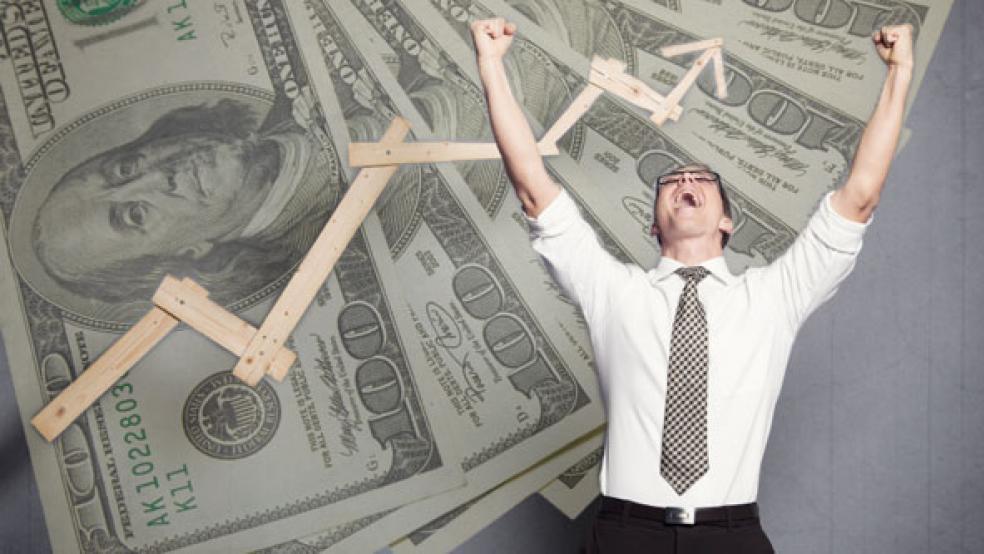The sharp drop in the market this week may have baby boomers on edge. But for younger investors, the selloff could be good news.
"It's an opportunity in two ways," says John Sweeney, Fidelity's executive vice president of retirement and investing strategy. "If you're contributing a fixed-dollar amount [as in a 401(k)], you're buying more shares when the share price is depressed. And for investors who have had cash on the sidelines and have a long-term goal, this may be an opportunity to put money to work."
Related: Stock Selloff Could Get Better Before It Gets Worse
For young investors who missed out on much of the market rally of the last five years, the recent selloff offers the chance to buy stocks at a discount. "It's always better to buy on dips in the market," Sweeney said. "You should not be panicked, particularly when your retirement goal is so far out in the future."
There's growing evidence millennials are more serious about saving for retirement than their predecessors. More than half of millennials surveyed by Fidelity earlier this month ranked preparing for retirement as a top priority. And a Transamerica Center for Retirement Studies study found 70 percent of millennials started saving at the "unprecedented" age of 22 (on average). That's compared to 35 for boomers.
"Young people can take on the most risk and volatility of any age group," said Jon Stein, CEO and founder of online investment service Betterment. "For young people it's a great time to get in to the market if they aren't already. And if they are, there's nothing to worry about because they have decades to build wealth."
The sharp drop in the market this week may have baby boomers on edge. But for younger investors, the selloff could be good news.
Related: Stock Market Correction - What It Is and What You Need to Know
"It's an opportunity in two ways," says John Sweeney, Fidelity's executive vice president of retirement and investing strategy. "If you're contributing a fixed-dollar amount [as in a 401(k)], you're buying more shares when the share price is depressed. And for investors who have had cash on the sidelines and have a long-term goal, this may be an opportunity to put money to work."
For young investors who missed out on much of the market rally of the last five years, the recent selloff offers the chance to buy stocks at a discount. "It's always better to buy on dips in the market," Sweeney said. "You should not be panicked, particularly when your retirement goal is so far out in the future."
There's growing evidence millennials are more serious about saving for retirement than their predecessors. More than half of millennials surveyed by Fidelity earlier this month ranked preparing for retirement as a top priority. And a Transamerica Center for Retirement Studies study found 70 percent of millennials started saving at the "unprecedented" age of 22 (on average). That's compared to 35 for boomers.
"Young people can take on the most risk and volatility of any age group," said Jon Stein, CEO and founder of online investment service Betterment. "For young people it's a great time to get in to the market if they aren't already. And if they are, there's nothing to worry about because they have decades to build wealth."
Related: Fear Goes Viral on Wall Street
In fact, a rise in the market later in life is preferable to the same boost earlier in life. In a hypothetical example, The New York Times laid out how such a scenario could affect investors who each contributed $10,000 per year.
The person whose account performs the worst sees five blockbuster years of 50-percent returns followed by 25 years of zero returns. The person who performs the best has the exact opposite experience with 25 years of zilch growth and five years of 50 percent returns at the end.
Just how much is the gap in this hypothetical example? Try $448,200 for the unlucky investor with early gains versus $2.01 million for the lucky one with later gains.
"If you're not going to need the money until later, you'd rather the stocks go down and down and then increase at the end," said Wealthfront's executive chairman, Andy Rachleff. "It's counterintuitive, but it's true." But such an outcome depends on the rare individual in the financial world: the rational investor who doesn't react hastily to poor market moves. To avoid falling prey to emotions, Rachleff recommends setting up consistent contributions and incorporating rebalancing and tax-loss harvesting into your investment strategy.
Related: Baby Boomers Not Set for Rising Health Care Costs
Indeed, evidence shows investors often miss out by buying high and selling low. Since 1984, investor returns in equity funds have totaled 3.69 percent annually, much lower than the 11.11 percent return of the S&P 500, according to Dalbar, a research firm specializing in financial services. The firm found that the biggest losses tend to occur after a market decline.
"Investors tend to sell after experiencing a paper loss and start investing only after the markets have recovered their value," the firm wrote in a report. "The devastating result of this behavior is participation in the downside while being out of the market during the rise."
This article originally appeared in CNBC.
Read more at CNBC:
Biggest billionaire losers in market fall
How Alibaba IPO may have signaled a market top
New Saudi reality: OPEC isn't a monopoly anymore

